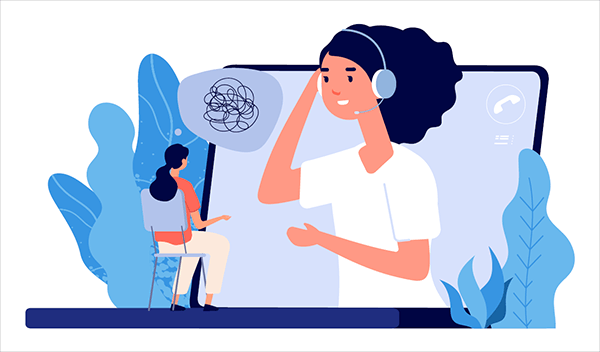
A Collateral Duty Counselor (CDC) is an NIH full-time employee who has volunteered with the Office of Equity, Diversity, and Inclusion (EDI) to perform Equal Employment Opportunity (EEO) Counselor duties beyond their primary NIH duties and responsibilities. A CDC plays an essential role in helping the full-time EEO Counselors process and/or resolve EEO complaints. CDCs are trusted agents of the EEO program and serve as the first responders to facilitate and resolve informal EEO complaints, workplace conflicts, and workplace disputes.
What are the benefits of being a CDC?
Serving as a CDC provides an excellent opportunity for individuals to develop transferable skills that can be leveraged in other career fields. They have the chance to build their interpersonal skills and interact with diverse groups of NIH employees at all levels. Jackie Stillwell, a current CDC, noted, “being a Collateral Duty Counselor has made me a better active listener and fulfilled my need to help others.”
The experience exposes you to a broad view of the work happening across the NIH. These volunteer EEO counselors undoubtedly enhance their writing and analytical skills as they are charged with reviewing regulations and policies regarding personnel management, and use these competencies during conversations with aggrieved parties to seek resolutions and complete case reports.
Carol Brooks, another current CDC, remarked: “as a Collateral Duty Counselor, I’ve learned that compassion is extended to all, but facts are the roots of truth. Our goal is not to determine guilt, but to seek a comparable resolution that will ultimately involve effective and respectful dialogue.” CDCs deepen their problem-solving skills as they are tasked to liase with complainants, responsible management officials, and others throughout this process to develop effective and innovative resolutions to EEO complaints.
EDI wants to ensure that as a member of the CDC community, participants in the program receive ample support to ensure success. Each CDC is assigned a buddy—a full-time EEO Counselor—to support them throughout their time as a CDC. EDI hosts quarterly meetings dedicated to discussing critical topics and relevant CDC program issues. This forum serves as an opportunity to get acquainted with and learn from each other. Overall, serving as a CDC is a wonderful networking opportunity and a chance to obtain new professional skills and add valuable experience to any resume!
How can I become a CDC?
Every two years, EDI invites NIH staff to submit applications to the Collateral Duty Counselor program. If you would like to interview for a CDC position, watch for our next application email and submit your resume! If selected, you will be expected to take a one-time 32-hour EEO Counselor certification training and then renew with an 8-hour training each year to maintain the certificate. A CDC’s term is two years. After the initial term, the CDC can choose to graduate from the program or commit to an additional term.
As a prior CDC myself, I can say that it was a pleasure to participate in the program. I enjoyed helping people better understand the EEO process. I have realized that if people have the right tools, they can succeed in building a better work environment for all of us.
I look forward to welcoming the next class of CDCs to our community. We will be accepting the next round of new applications in 2023.
Do you have a story idea for us? Do you want to submit a guest blog? If it's about equity, diversity, or inclusion, please submit to edi.stories@nih.gov.
For news, updates, and videos, follow or subscribe to EDI on: Twitter, Instagram, Blog, YouTube.






